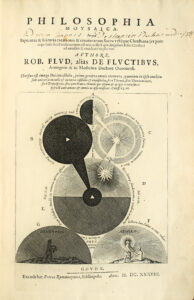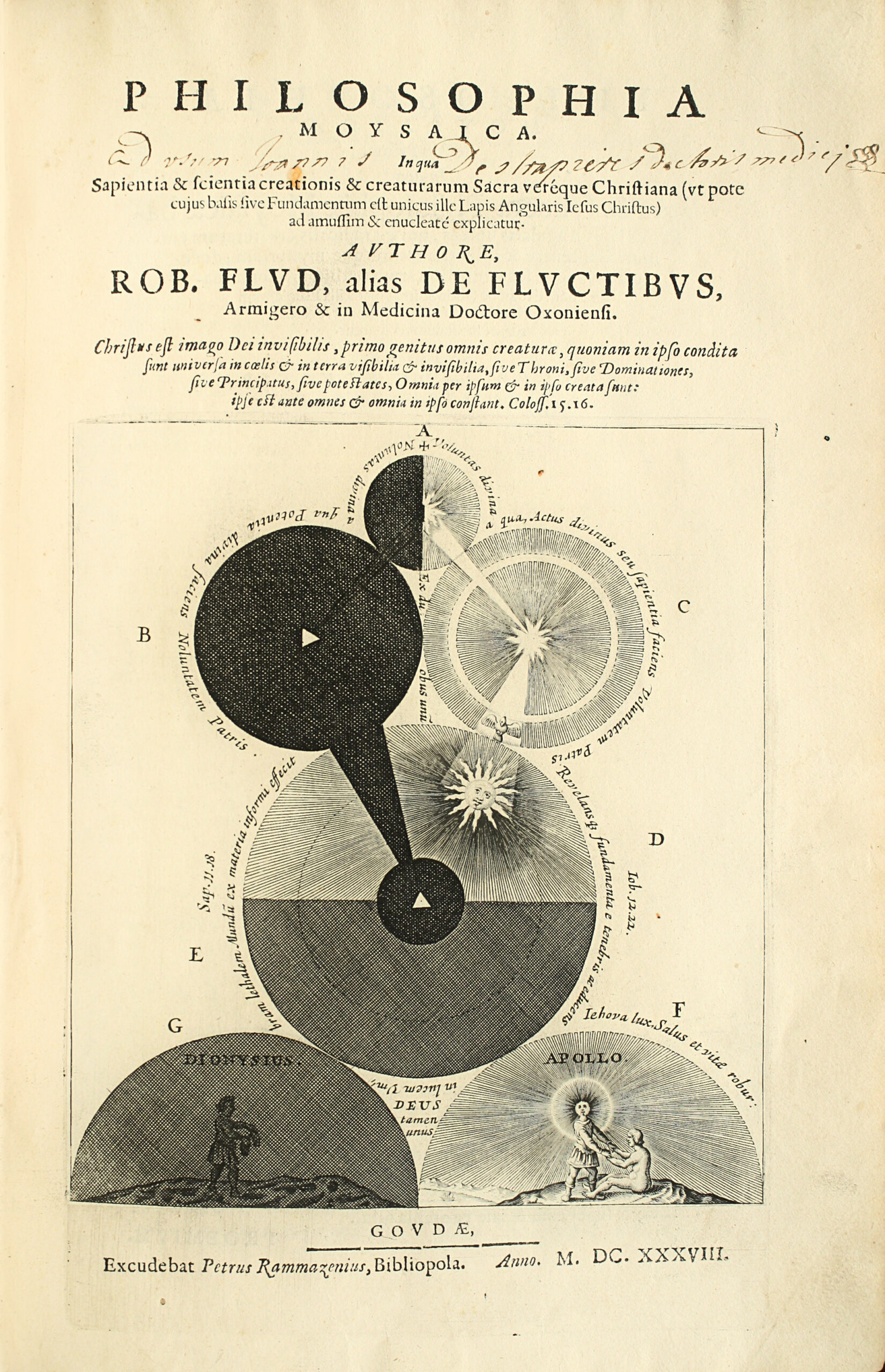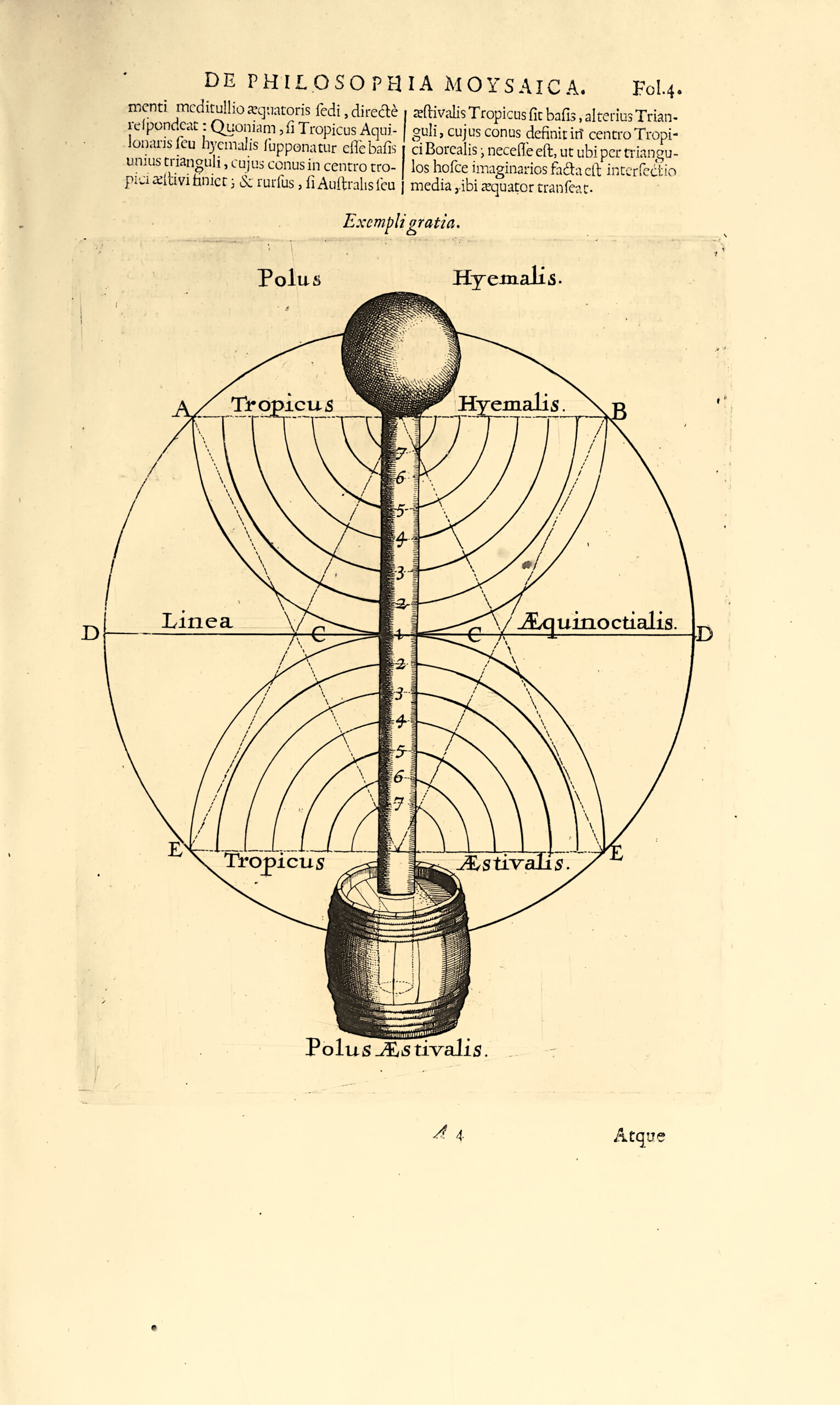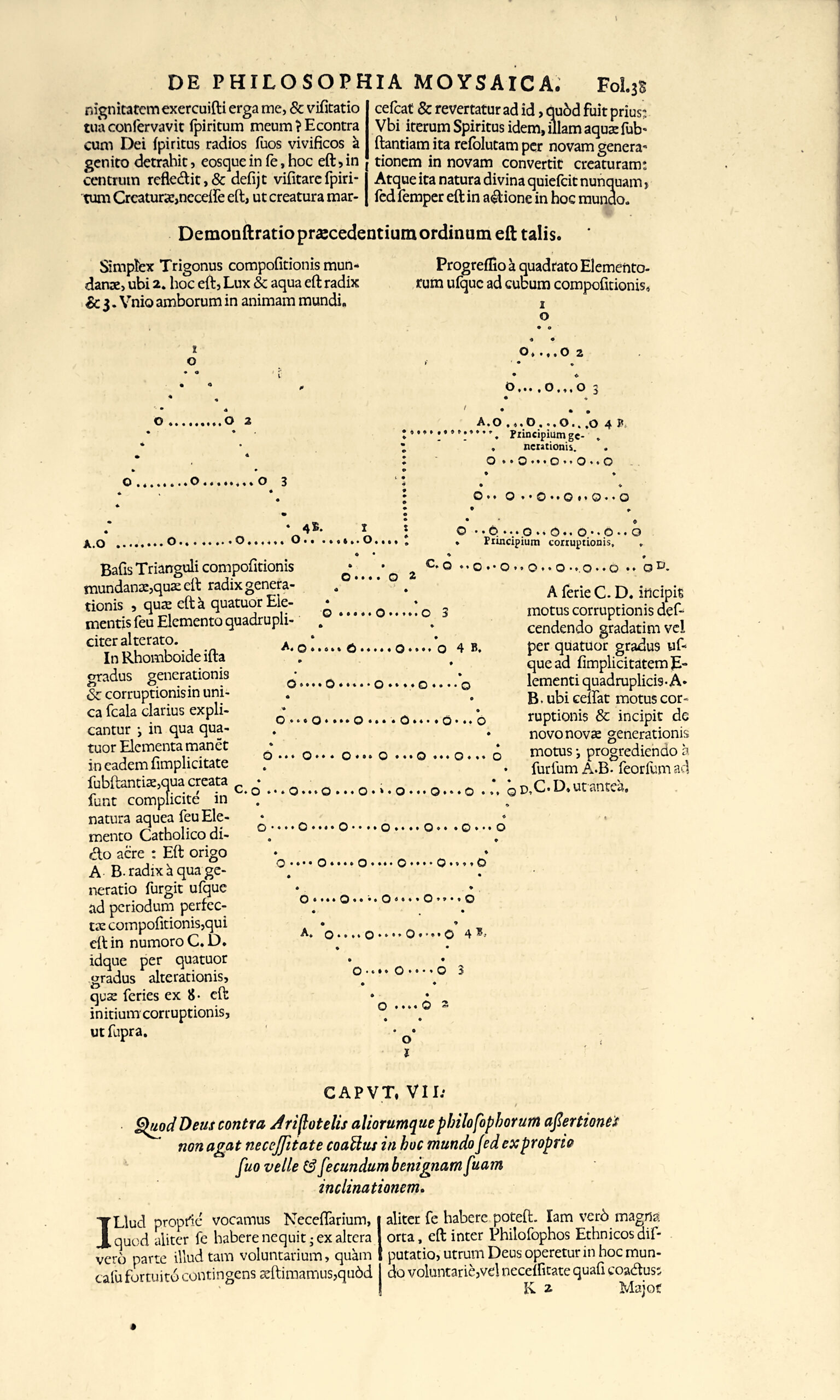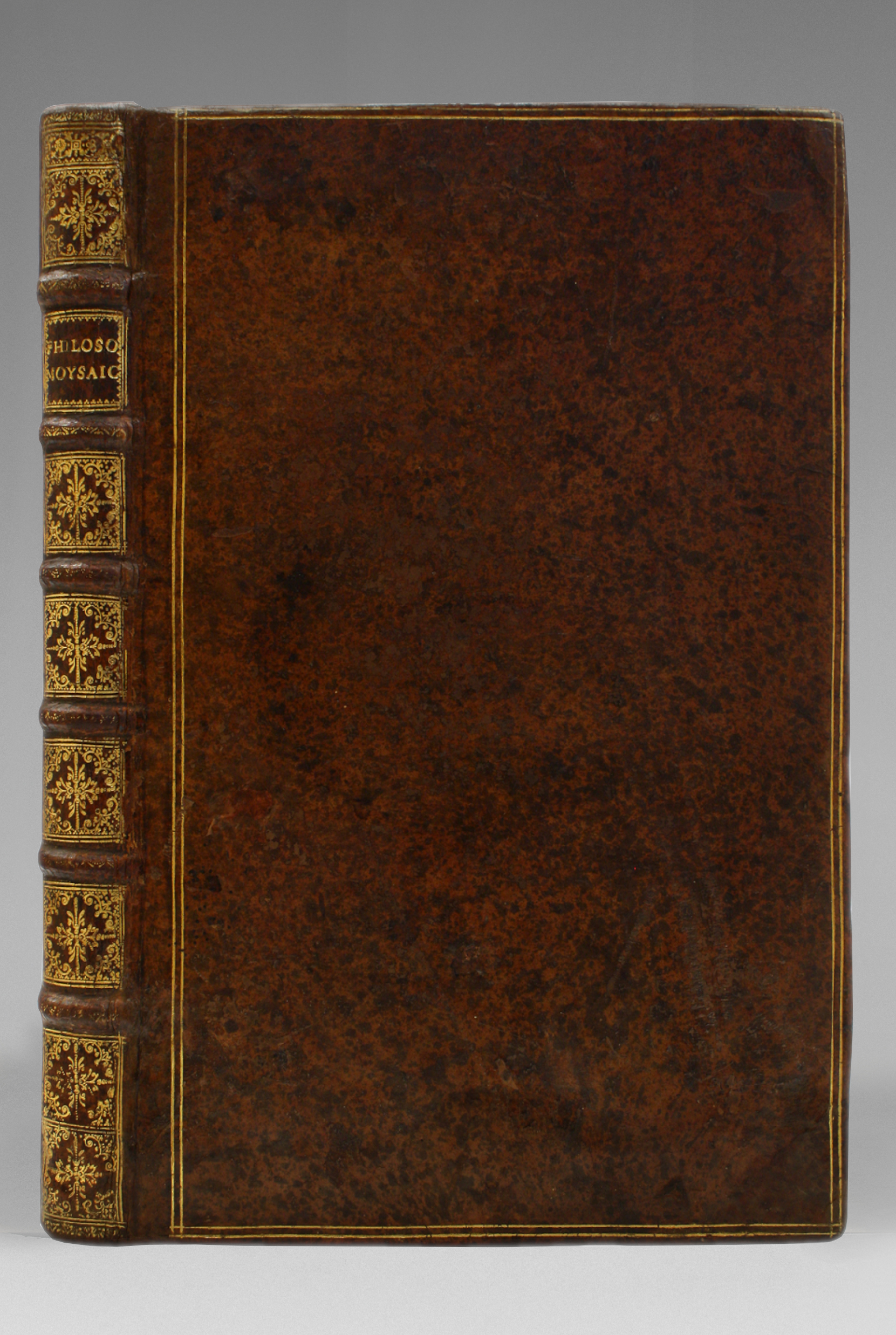Goudae, Petrus Rammazenius, 1638.
Large 4to of (4) ll. including the engraved title, 144 ll. (wrongly numbered 152); 30 ll., (1) l. of errata bound between the ll. 28 and 29, numerous engravings in the text. Bound in contemporary full brown mottled calf, double gilt fillet around the covers, flat spine decorated with gilt fleurons, red marbled edges. Contemporary binding.
317 x 195 mm.
Posthumous first edition of Robert Fludd’s last essay, dealing with Creation.
Sir William Osler, Biblotheca Osleriana : A catalogue of books illustrating the history of medecine and science, n°2629; DSB V, 47ff. – Ferguson I, 284. – Wheeler Gift 112-113. – Mottelay S. 554. – Gardner 237 & 236. – Wellcome I, 2331 & 2332. – Poggendorff I, 763 (nur Tl. I). – Osler 2629.
In his work, Robert Fludd (1574-1638), one of the most famous English philosophers and alchemists, demonstrates the equality between the Sun – source of light and life – and God.
‘In the first half of the seventeenth century [Fludd] was one of England’s best known philosophers. Certainly few Englishmen of his day managed to draw the attention of such a distinguished group as Kepler, Mersenne, and Gassendi – each of whom wrote at least one work discussing, and usually complaining of, Fludd’s theories. To many Europeans he seemed the most prominent of all English philosophers of his day ‘Fludd, like most other Renaissance scientists, and certainly like all Paracelsians, had a bitter hatred of Aristotle even though Aristotelian influences are evident throughout his work. As his authority he preferred to turn to God’s two books of revelation – one, His written book, the Holy Scriptures, and the other, nature, God’s book of Creation Fludd stated that the origin of all things may be sought in the dark chaos (potential unity) from which arose the light (divine illumination or actual unity). He affirmed that there is true unity in this dichotomy since “Light was unto the eternall unity all one with darkness, though unto our weak capacities they are opposite in property”. Continuing, he explained that it was from the darkness or shades of the chaos through the divine light that there appeared the waters which are the pervasive matter of all other substances. This is then true Mosaic philosophy, which is built upon the three primary elements of darkness, light, and the waters or the Spirit of the Lord. And it is with the aid of this divine knowledge that we may bring order even out of the confusion found in the writings of the ancients on the subject. With a careful analysis of their texts Fludd showed that when Aristotle wrote of the prima materia, Plat of the hyle, Hermes of the umbra horrenda, Pythagoras of the “symbolical unity”, and Hippocrates of the deformed chaos, they were all writing in reality of the darkness or the dark abyss of Moses. Similarly by some name or another all of these philosophers knew something of the Mosaic “light” and “waters”. However, in their interpretations they often varied far from the truth and it is to the works of Plato and the Pymander of Hermes that the true adept is urged to go for enlightenment’ (Debus, The English Paracelsians pp. 105-109).
Disciple of Paracelsus, he mostly defends in this famous work the magnetic medicine, which leads him to the transplantatory one: Fludd thus exposes the virtues of the transplantation of a disease between men, animals and plants.
The edition encloses at the end Fludd’s answer to the refutation of this work published by the Scottish priest Foster: Responsum ad Hoplocrisma-Spongum M. Fosteri (Ibid., id., 1638 – 30 ll.).
The work is illustrated with a copper-engraved title (repeated at the beginning of the second part) and with about 30 engravings in the text including 4 copper-engravings.
Beautiful copy preserved in its contemporary brown calf binding.
Provenance: A N. Brugière de Lamotte (engraved ex-libris) and contemporary handwritten ex-libris on the title.
